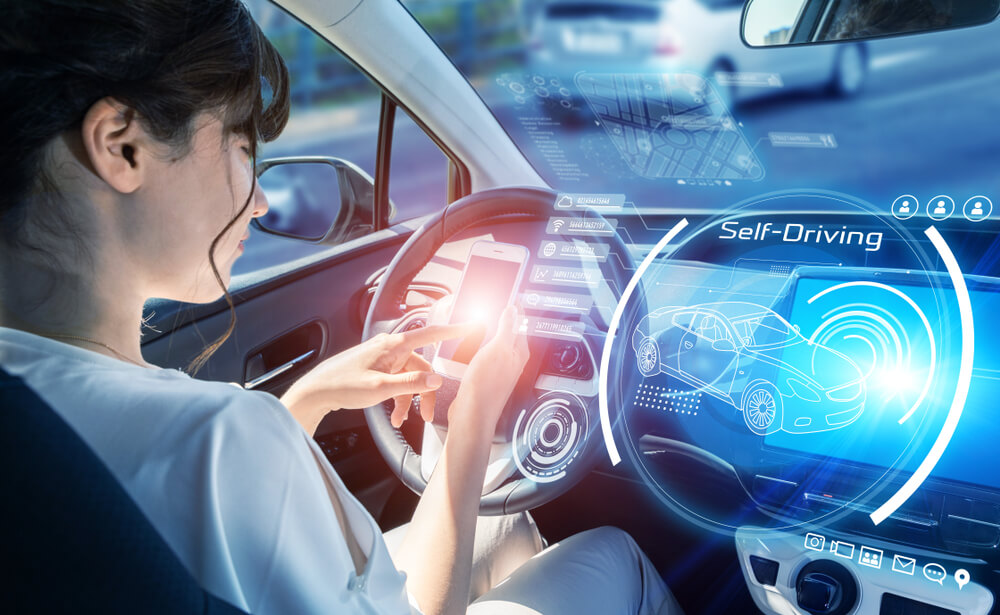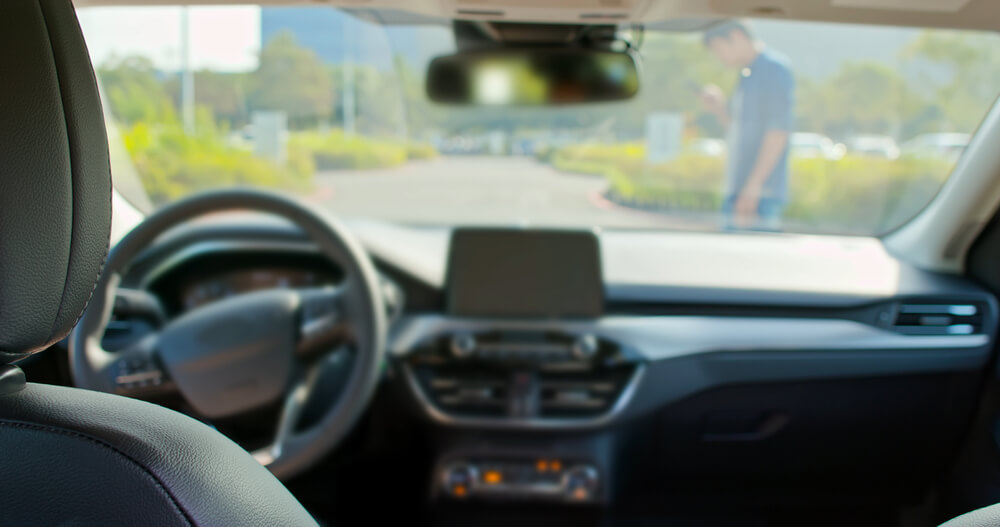
Associate at AKD Lawyers
Practice Areas: Personal Injury, Workers Compensation

Autonomous vehicles—also called self-driving cars—are no longer a futuristic dream. With companies like Tesla, Waymo, and General Motors pushing the boundaries of this technology, driverless vehicles are already being tested and operated on roads across the country. But with these advancements comes a serious and complicated question: Who is legally responsible if an autonomous vehicle causes an accident?
Unlike traditional car crashes, where a driver is usually at fault, autonomous vehicles are controlled by a complex system of sensors, algorithms, and software. That means liability is no longer straightforward. This guide will help you understand autonomous vehicle liability, explore who can be held accountable, and what to do if you’ve been involved in such a case.
What Does Autonomous Vehicle Liability Mean?
Liability refers to legal responsibility. In car accidents, it’s about identifying who is at fault and who should pay for the damages. But when a car drives itself, blame becomes harder to assign.
In these situations, multiple parties could be involved — the car’s owner, the manufacturer, the company that created the self-driving software, or even a third-party maintenance provider.
Each vehicle plays a different role in how it operates, which means each car could potentially be held liable depending on the situation.
This area of law is still developing, and courts are starting to see more of these cases. As the technology spreads, understanding how liability works is essential for drivers, pedestrians, and anyone else sharing the road with autonomous vehicles.
Who Can Be Held Responsible in a Self-Driving Car Accident?
Accidents involving autonomous vehicles are complicated because there’s usually more than one party involved in how the car operates. These vehicles rely on hardware (like sensors and cameras), software (to process information and make decisions), and the physical vehicle itself.
Here’s a closer look at who might be liable in these cases:
Vehicle Manufacturers
If the accident happened because of a defect in the car — like a failed brake system, faulty steering mechanism, or defective sensors — the manufacturer could be held responsible. These types of cases fall under product liability law, which has companies accountable for selling unsafe products.
Software Developers
Self-driving cars depend heavily on artificial intelligence to navigate roads. If there’s a bug or flaw in the code that leads the vehicle to make a dangerous decision, the software company could be considered at fault. These types of errors are more complex to prove and often require digital forensics.
Vehicle Owners
Some autonomous vehicles still require the owner to stay alert and ready to take over in emergencies. If the car was not adequately monitored or maintained, or if the owner failed to intervene when necessary, they could also share in the liability.
Fleet Operators or Third Parties
In the case of rideshare companies or delivery services using autonomous vehicles, the company operating the fleet may be held accountable. Similarly, third-party vendors responsible for sensor maintenance or map data could also be involved if their service fails.
The challenge in these cases is that fault isn’t always obvious. It may take deep investigation to trace the cause of an accident and determine which party or parties were genuinely responsible.

What Do the Laws Say About Self-Driving Cars?
The legal framework for autonomous vehicles in the U.S. is still taking shape. Right now, no single federal law governs how autonomous vehicles must operate, which means laws vary from one state to another. However, both federal agencies and state governments are working to create more consistent rules.
Federal Guidance
The National Highway Traffic Safety Administration (NHTSA) has released voluntary safety guidelines for autonomous vehicle manufacturers. These guidelines focus on vehicle safety standards, data collection, and transparency but don’t assign clear liability in accidents.
State Laws
Some states, like California and Arizona, have introduced legislation explicitly addressing autonomous vehicle use. This legislation includes requirements for operator licensing, insurance coverage, and accident reporting.
The Automated Vehicles Act 2024 emphasizes public safety by holding manufacturers of self-driving vehicles liable for crashes, a step that prevents technology companies from setting their own rules.
In general, the laws are lagging behind the technology. As more accidents occur and more cases are brought to court, new legal precedents will help clarify how responsibility should be handled.
Real-Life Examples: How Courts Are Handling These Cases
A number of high-profile cases have already helped shape the legal landscape around autonomous vehicles.
Tesla has settled a lawsuit with the family of Walter Huang, a Silicon Valley engineer who died in a 2018 crash while using the company’s semi-autonomous driving software, Autopilot.
In that case, the vehicle’s software failed to recognize a highway divider and crashed at high speed. Tesla argued that the driver ignored safety warnings, while the family claimed the software malfunctioned. The case ended in a confidential settlement — but it highlighted the gray area of shared fault between humans and machines.
In another case, a self-driving Uber test vehicle struck and killed a pedestrian in Arizona. Investigators found that the safety driver was watching videos on her phone and failed to intervene, even though the software had identified the pedestrian too late to brake.
These examples show how complicated these cases can be — and how important it is to have legal support that understands both the technical and legal issues involved.
Why Autonomous Vehicle Cases Are More Complicated Than Normal Accidents
Determining fault in a crash involving two human drivers is usually a matter of gathering eyewitness reports, checking for traffic violations, and reviewing damage. With autonomous vehicles, things aren’t that simple.
Here’s why these cases are more complex:
Data and Technology
Self-driving cars produce a digital record of everything they do. These logs include sensor data, camera footage, speed, braking patterns, and decision-making logs. Understanding and interpreting this information requires technical expertise.
Shared Liability
Multiple parties could share responsibility. Proving that a crash was caused by a software error and not human negligence requires expert testimony and technical analysis.
Lack of Legal Precedent
Because these cases are still new, there aren’t many clear guidelines or past cases to rely on. That makes outcomes less predictable and more dependent on the strength of the investigation.
Liability in self-driving car accidents can be complex, as there are a number of different parties who may be held responsible.
These are not simple fender-benders. They’re high-stakes, high-complexity cases that demand legal expertise and technical understanding.

How Autonomous Vehicle Accidents Compare to Regular Car Accidents
To better understand the difference, here’s a comparison:
| Aspect | Traditional Vehicles | Autonomous Vehicles |
| Primary Responsible Party | Driver | Manufacturer/Software Developer |
| Role of Human Error | High | Variable |
| Legal Precedents | Established | Emerging |
| Evidence Complexity | Moderate | High (involving technical data) |
| Insurance Implications | Standard Procedures | Evolving Policies |
This table shows why standard legal approaches don’t always work with autonomous vehicles. The parties involved and the type of evidence needed are very different.
Why Legal Representation Is Critical
If you’ve been in an accident with an autonomous vehicle, you’re dealing with more than just a personal injury case. You’re stepping into a legal gray area that requires in-depth technical knowledge, familiarity with emerging laws, and the ability to fight against powerful companies.
Here’s how an experienced attorney can help:
- Review the vehicle’s internal data to understand what went wrong
- Consult with technical experts to reconstruct the accident
- Identify every party who may share responsibility
- Negotiate with insurers who may be unfamiliar with these types of claims
- File lawsuits against manufacturers or tech companies if necessary
Without skilled legal help, victims risk being undervalued or ignored entirely in the process. An attorney’s role is to even the playing field and make sure you get the justice and compensation you deserve.
Frequently Asked Questions (FAQs)
Who can be held liable in an autonomous vehicle accident?
Depending on the cause of the accident, liability may fall on the vehicle’s manufacturer, the software developer, a third-party vendor, or even the human operator if they fail to intervene when required.
How do current laws address autonomous vehicle accidents?
The legal landscape is still developing. Federal agencies provide guidance, but liability rules vary by state. Each case is handled individually, depending on the facts and jurisdiction.
What challenges exist in proving fault in autonomous vehicle accidents?
Challenges include analyzing technical logs, understanding how the system made decisions, and determining whether human oversight was expected or required at the time of the crash.
Are there any notable cases involving autonomous vehicle liability?
Yes. Tesla and Uber have both faced high-profile legal battles involving fatal crashes. These cases have begun shaping how liability is viewed in autonomous vehicle litigation.
How can an attorney assist in such cases?
An attorney can collect and analyze technical evidence, determine the correct liable party, and handle negotiations with large tech and insurance companies on your behalf.
Conclusion: Your Rights Matter in a Changing World
Autonomous vehicles are here to stay, and they bring exciting possibilities — but also serious legal challenges. When something goes wrong, the question of who is at fault becomes more complicated to answer than ever before.
Whether it’s a software glitch, sensor failure, or negligent oversight, you deserve answers — and you deserve accountability. These are not cases you should handle on your own.
At AKD Law, we understand the technical and legal complexity of autonomous vehicle cases. If you or someone you care about has been injured in an accident involving a self-driving car, we’re here to help you understand your options and protect your rights.
Let us stand by you — with knowledge, strategy, and commitment — every step of the way.
Categories

In 2003, after being dissatisfied with the quality of legal care for victims of car accidents, Roderick ‘Rico’ Alvendia sought to establish a new firm focused on providing high-quality legal services to aid injured victims and their families. J. Bart Kelly, sharing Rico’s passion for upholding justice, joined the firm later that year, and established a partnership.






